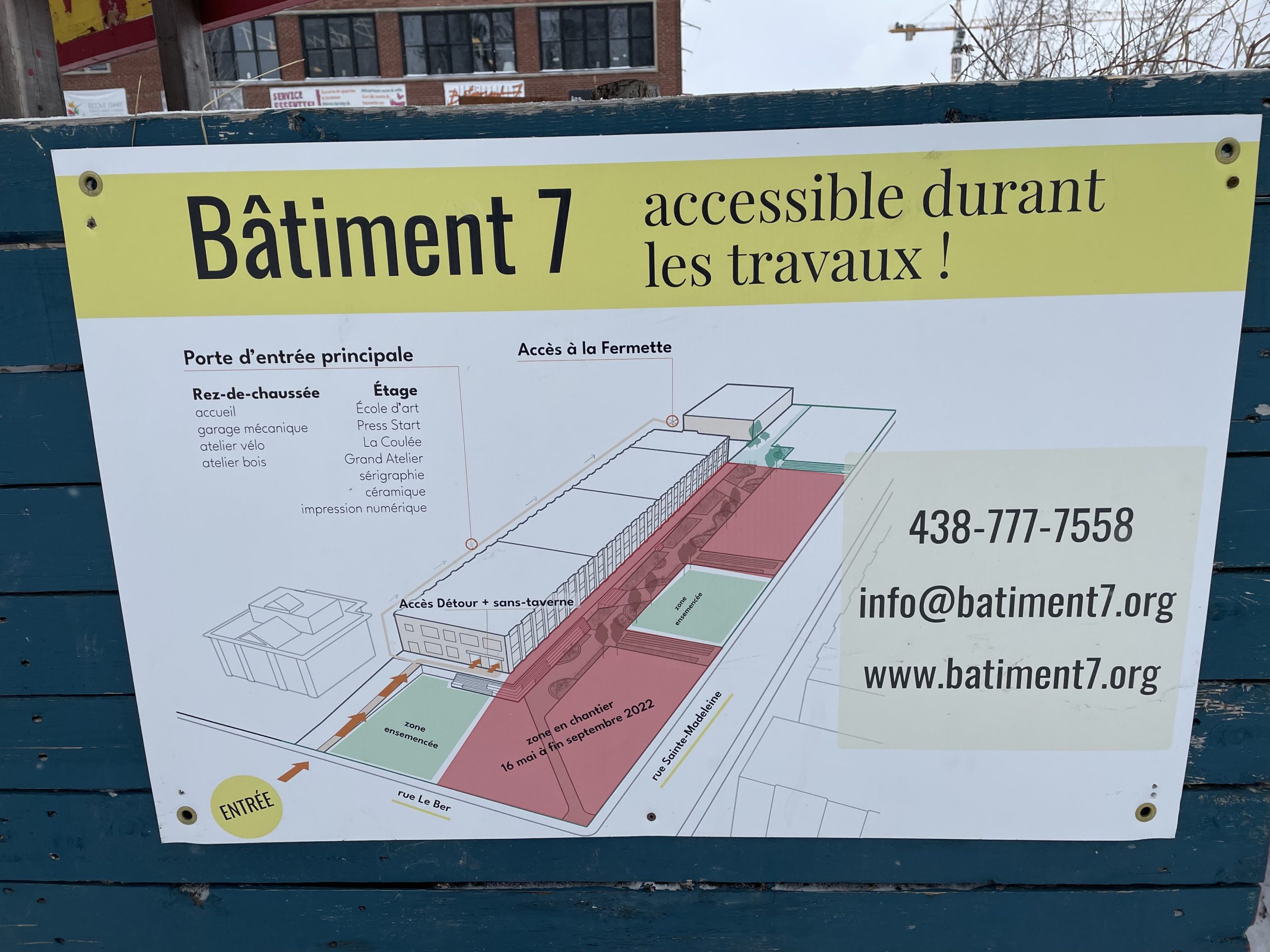Cities, Climate and Inequalities - The (very) concrete utopia of Bâtiment 7: A common facing the challenges of its financial autonomy
By Sylvain A. Lefèvre et David Grant-Poitras
Bâtiment 7 is a « collective autonomy factory » located in a working-class district of Montreal. By studying the micro-politics of its financing, we examine the articulation of its issues of sustainability, accessibility and economic democratization. Structural tensions emerge in reconciling all these objectives, but so do promising social innovations. Far from being a technical detail, financial empowerment puts the common good to the test – its boundaries, its resources, the links between its members and its collective architecture.
Cities, Climate and Inequalities - Community development in the context of the social and environmental transition: Eight Local development processes in Quebec
By Lucie Morin, Sonia Racine, Denis Bourque, André-Anne Parent, René Lachapelle, Christian Jetté, Stéphane Grenier, Dominic Foisy, Sébastien Savard, Serigne Touba Mbacké Gueye, Geneviève Le Dorze-Cloutier, Ariane Hamel et Charlotte Goglio
In Quebec, a multitude of players work together to maintain and improve living conditions. Solid expertise has been built up in the field of community development. This collective intelligence could be put to good use in the fight against the climate crisis. Qualitative research carried out in 8 territories in Quebec aims to understand how territorial development approaches, especially those dedicated to social development, contribute to the collective efforts required to ensure the socio-ecological transition.
Cities, Climate and Inequalities- Key considerations for addressing the equity deficit in municipal climate action
By Jennifer Dobai et Manuel Riemer
Increasingly, municipalities are taking actions to address global climate change at a local level. Yet, some of these actions generate unintended consequences for marginalized communities, resulting in an equity-deficit. In this summary, the authors first review a study that explored the perspectives of key municipal sustainability actors on this equity-deficit in municipal climate action. While there was a general awareness of this issue, the participants highlighted several key structural barriers in addressing it. Building on this finding, the authors then review a second connected study from the same municipal area that investigated how a needed transformation may be initiated by shifting mental models of municipal leaders.
Charger davantage de contenu


